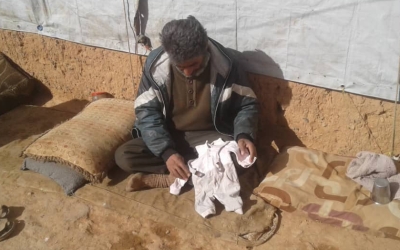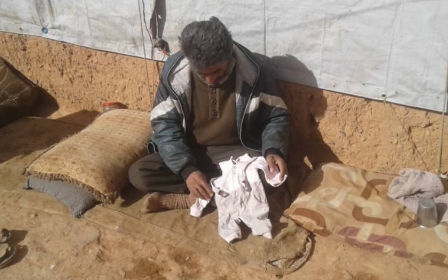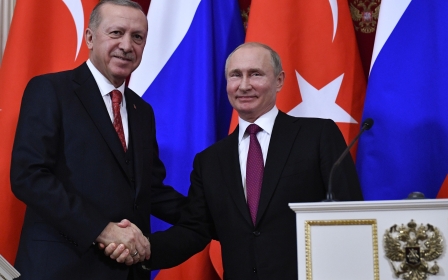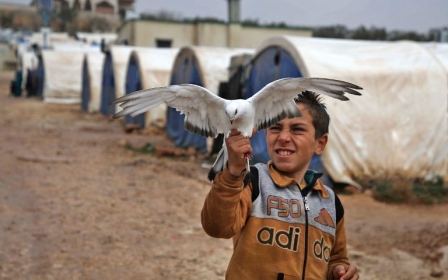'Nothing has changed': Civilians suffering in Idlib despite de-escalation zone
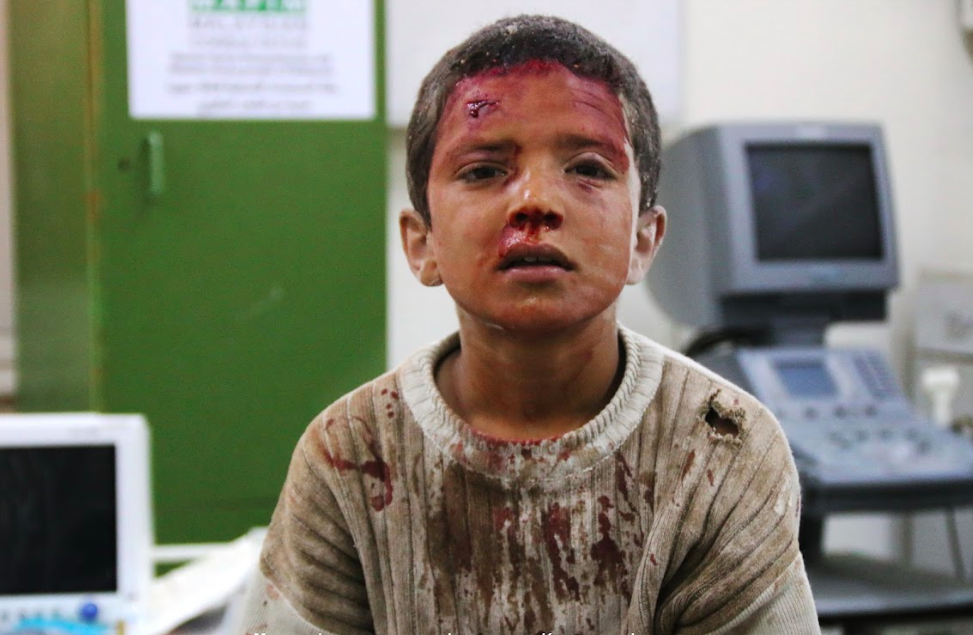
Civilians continue to bear the brunt of suffering in northern Syria, as government forces step up their bombing campaign on rebel-held areas ahead of peace talks in the Russian city of Sochi later this month.
The escalation in artillery attacks on towns and villages by government troops across southern Idlib has forced Syrians to flee their homes in a bid to stay alive.
Thousands are estimated to have been displaced by the renewed government advance in southern Idlib - despite its designation as a "de-escalation zone" - as harsh winter conditions further compound the situation.
Mass displacement of thousands
Officials earlier this month warned the UN Security Council that "harsh winter conditions" and "ongoing hostilities" have resulted in the displacement of "tens of thousands more civilians." Last month, the UN said those winter conditions had killed some 30 children.
New MEE newsletter: Jerusalem Dispatch
Sign up to get the latest insights and analysis on Israel-Palestine, alongside Turkey Unpacked and other MEE newsletters
Jumaa Darbasi, a 41-year-old bookseller from Homs, said he had been forced to flee with his family following government advances near his village.
"In the early years of the war, we could migrate to the countryside and escape the bombs," said Darbasi, who has been displaced on multiple occasions because of the war.
"But with Assad taking control of more land, it's displacing more and more people, and making things harder for everybody.
"There is nowhere else to go. Shelters are not easy to find near the border, and we can't afford to move again. I'd rather stay and pray to God for this to end."
The UK-based Syrian Observatory for Human Rights said that government forces in northern Syria had killed at least 68 civilians since Turkish President Recep Tayyip Erdogan's last meeting with his Russian counterpart Vladimir Putin.
Earlier this month, local revolutionary councils in Jarjanaz and al-Teh in southern Idlib declared the villages "disaster zones" following the escalation in government attacks.
Said Khaled Alaa-Deen, who is part of the local revolutionary council in Jarjanaz, said that attacks on his village continued before and after the Sochi process began in Russia.
"There is no ceasefire in Idlib, and nothing has changed because of Sochi," Alaa-Deen told MEE.
"In the last few days, we have seen at least 100 mortar missiles land in our village and forced nearly 90 percent of the local population flee."
Sochi talks
Aid agencies have warned of the impending humanitarian crisis in Idlib as supplies run low.
Russia is set to host Iranian and Turkish officials later this month to discuss the civil war, and the de-escalation zone it has set in place.
Ahmad Rahal, a military analyst and former colonel in the Free Syrian Army, told MEE that despite the escalation in fighting by government troops, he expects Russia and Turkey to maintain the peace in Idlib.
"Iran has been trying to get opposition groups to fight in southern Idlib, but Turkey has been successful in stopping the rebels from playing into Iran's war games," said Rahal.
"Russia and Turkey will most likely undertake joint operations to eliminate extremist factions affiliated to Al-Qaeda.
"But we know that the Assad regime and Iran are not happy with Russia's cooperation with Turkey and will stop at nothing until they recapture Idlib."
Middle East Eye delivers independent and unrivalled coverage and analysis of the Middle East, North Africa and beyond. To learn more about republishing this content and the associated fees, please fill out this form. More about MEE can be found here.


